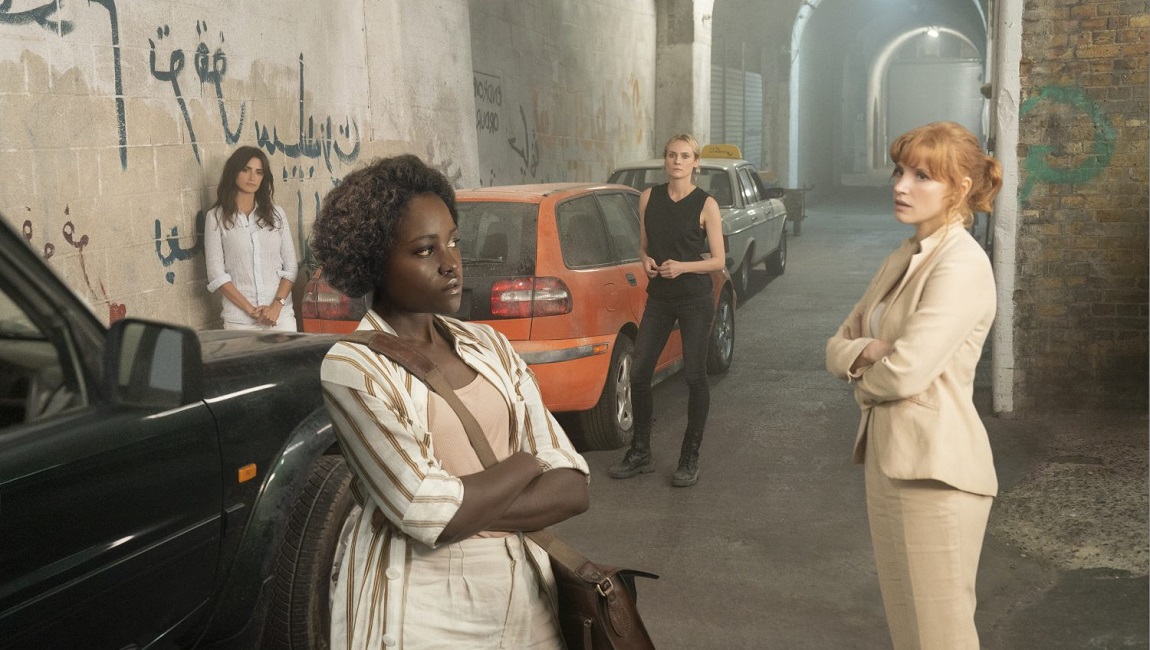One of last year’s standouts, Pietro Marcello’s Martin Eden, traced the trajectory of a writer from his idealistic roots towards a solipsistic cynicism at the end of his career. In fellow Italian countryman Fabrizio Ferraro’s narrative feature The Luminous View, we find a similarly tortured soul in the guise of filmmaker Mr. Emmer (Alessandro Carlini), whose obsession with the German poet and philosopher Hölderlin has led him to a breaking point. Unlike Martin Eden however, we join Emmer not at the beginning, but at the bitter end. The first shots of him are in a hospital bed, which squeaks as it elevates his head to a sitting position and back down again; he bobs in and out of shadows quietly muttering under his breath. In deliberate contrast to its title, the film’s vantage is far from luminous. The characters are cloaked in shadows while brighter sections are marred by an intentionally unfocused lens. These obfuscations, layered on the muted color palette of muddied grays, greens, and browns, evoke Emmer’s frail despondency.
After this cold open, the film jumps a few days before the hospital stay, though Emmer remains largely inscrutable all the same. Carlini admirably cloaks his performance in sullen introspection, but the script gives him little to work with beyond curt responses or trailing non-sequiturs. “She must have lost his love in the Lisbon earthquake,” he mutters under breath with eyes transfixed on the distance. Whether the man is merely lost in his obsessions or succumbing to a serious health issue is left ambiguous. Our only way into his world is through the brief interactions with his assistant Catarina (Catarina Wallenstein), but while their dynamic bears a cursory resemblance to the tense Kristen Stewart/Juliette Binoche relationship in Clouds of Sils Maria, there is a total lack of interiority to Catarina’s character, who ends up shyly acquiescing to Emmer at nearly every turn until it’s far too late. The two travel together to do research on Hölderlin for his upcoming film and as far as assistantships go things could hardly be worse. Emmer refuses to drive, refuses to wear a seatbelt, refuses to talk, and even refuses to leave the car at night. The beleaguered Catarina is forced into a motherly role. “Did you bring an extra pair of socks?” she asks as the rain hammers at the windshield. Later in the film Emmer opens the door of the moving car and walks off into a field, Catarina runs behind him with his bag, as he struts forward headstrong like a sulking toddler with a cigarette.
It’s at this point, late into the second half, that the film stalls out altogether, trapped somewhere between Catarina’s preternatural deference and Emmer’s sullen despondence. Ferraro goes all-in on the latter, discarding the assistant outright and deciding to close on an extended sequence that finds Emmer walking down one forest trail after another with nothing but incoherent bits and mutterings to pierce the silence. In the most memorable part of this monologuing, he describes the way the spacing of a spider’s web is constructed specifically to be made invisible to the flies’ eye-view. This neat little metaphor for the prey collapsing into a trap cleanly parallels Emmer’s gradual descent — meant to mirror Hölderlin’s late-life breakdown — but it might as well apply to Ferraro’s indulgent narrative, which so entwines itself in enigmatic distance and obfuscations that barely any clarity, emotion, or light can escape.
Published as part of Berlin Film Festival 2021 — Dispatch 5.







